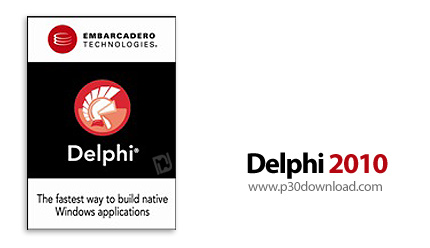Tutorial Crack Delphi 2010
Red Giant Trapcode Plugins Suite 12.1.7 for Adobe After EffectsMir Shine Particular Form Lux Echospace 3D StrokeSound Keys Horizon Starglow 61.5 MBTrapcode Suite 12 sets the industry bar with 10 tools for broadcast-ready effects and flexible 3D content. Its flagship product is Particular 2, a speedy 3D particle system with options for custom particles, particle shading and movement in 3D space. Program rapidshare trapcode mir tutorial.

For my current application I use a very simple scheme to register new users. When a new user registers an email is sent with a key. To check wether this key is correct a kind of checksum is computed (3-7-11 digit check) which is added as the last 2 digits of the key. There is no check on any further validity of the key. The application does not check whether the key got invalidated.It is a simple scheme and someone took the time to crack it by deassembling the code.
Delphi is one of the most respected and widely used Rapid Application Development (RAD) environments today. Over 1.7 million developers worldwide choose Delphi over other tools because Delphi radically speeds desktop, workstation, touch, kiosk, and Web application development without sacrificing an ounce of programming power or control. Nov 16, 2017 This feature is not available right now. Please try again later.
I want to use another scheme for my new application but I am not sure what is the best way to do this. Is there a Delphi library I could use?. Is it advisable to use some user supplied info in the key, like his name?. Is there a best practice way of registering users?. Anything else I have forgotten?Some registration schemes require an application to check each time at a webserver whether the key is still valid. I'd rather not go that far because this requires a lot of effort on the server side.Any suggestion or link for a robust way to register new users is very welcome.
There are and non-Delphi libraries (i.e Protexis) available to protect your software - remember that almost anything that works with C can work with Delphi as well. But a sound copy protection scheme may be hard to achieve. A simple key may not work, usually it used together a machine fingerprint to allow it to be used on given system only.A good key generator algorithm should generate keys that are not easily predictable, yet can be checked if valid. There are different ones around, there is not a 'generic' one, depends on your needs, some may also include what features to activate or expiry informations. Some keys can be strings, other can be whole license files (as those used by Delphi itself). Anyway code can be disassembled to try to guess the algorithm, some techniques to obfuscate it and make it harder to understand can be used.Also, one simple key check is not enough because it can be easily bypassed patching the executable.
If you really need copy protection, you should scatter checks all around the code, maybe encrypting and then decrypting data or code sections using the key - it won't protect you against keygen, anyway and will require more code changes, it's not as simple as calling one function at startup.The level of protection is up to you. If you need just a simple registration mechanism and you don't mind much about your software being cracked you can use a simple one. If you need a more secure one then there are more sophisticated one.
If your goal is to force people to download a cracked EXE from the Internet instead of a key generator from the Internet, then asymmetric cryptography is your answer.If your goal is to be able to void serial numbers that have been released to the wild, restrict the number of installations, or force the user to have a real 'paid for' serial number, then activation is your answer. Still, if they crack your EXE, they can get around this.You only have control up to the point that someone cracks your EXE. We have to accept this and move on. We must figure out other ways to reach out to our customers, such as more affordable versions, value added support options, web services, and other ways that convince the user that the price of our software is fair, and there is a benefit in paying.On my latest release, I use activation, so the serial numbers are randomly generated, though checked for uniqueness, and associated with an email address.After all of this, the application is just $4.99, but with no individual support.
Supplement to the factory repair manual for the Nissan Civilian Bus, W40 series, from August 1995. Nissan civilian owners manual.
The goal is to make it so affordable that if they want to use it, even just once, it's a good value. We've been using Oreans' WinLicense for two years and are quite happy with it. They handle key generation (with the user name embedded), trial versions that time-out, hardware keys (where the key you send them is unique for their computer) and VM detection. They also use a variety of other techniques to make it harder for your code to be disassembled, including wrapping code of your choice in an encrypted VM they provide.You can also disable specific keys if you determine that they are 'stolen.' Having done this, future updates you supply will no longer run with those keys.We also have our software 'phone home' at certain times to see if their key is stolen.Any protection scheme can be broken by someone who is determined and skilled enough.
But, we've been happy with the degree of security we believe that WinLicense gives us. Their support is also excellent.
The library is callable from Delphi.